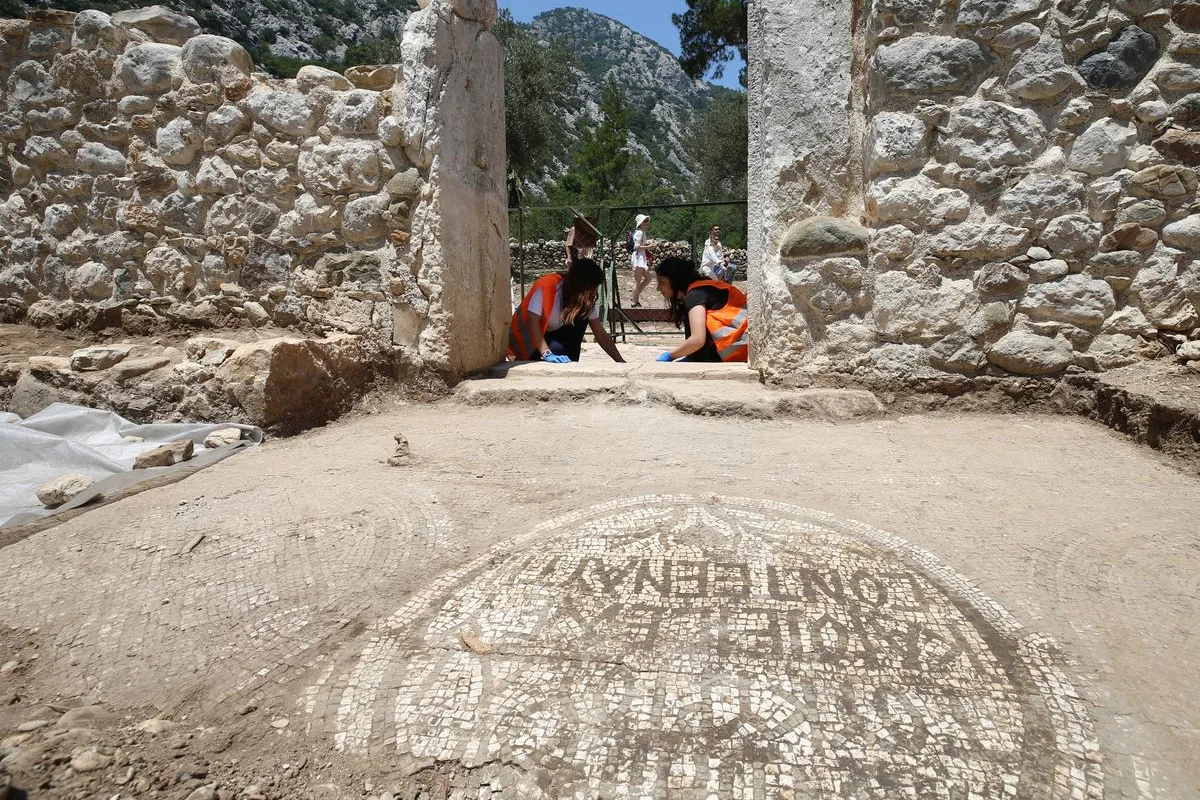One of the most amazing, but also paradoxical stories from the time of ancient Greece is undoubtedly the story of Epimenides.
Both the concept of the cave and the concept of descending into it is not a simple matter, but hides a very serious initiation, connected with the revelation of secrets about life and death. Epimenides, one of the most famous sages who ever lived in Crete, slept in a cave for 57 whole years!
Epimenides is considered one of the most famous sages who ever lived in Crete. He was not only a religious teacher, but also known for his divination and prophetic abilities.
However, perhaps the knowledge of the most important event of his life has been preserved, thanks to which he has remained known until today.
Thus, his father once lost one of his sheep and sent his son Epimenides to the field where the sheep was lost, to look for it and bring it back.
Epimenides actually set out to find the sheep, but it seems that he got confused along the way and instead of reaching the field his father had shown him, he got lost and accidentally entered a cave. Being tired from the search for the sheep, he fell asleep.
What is particularly impressive, however, is that Epimenides slept in this cave for a whole 57 years! The memory of this paradoxical event has been preserved until our days by the proverbial phrase "Epimenides’ sleep".
But our story does not end here.
When Epimenides woke up, he went in search of the sheep again, believing that he had slept only a few hours.
But soon, in the effort of his new searching, he realized to his surprise that during his sleep everything around him had changed, since he could no longer recognize anything of what he knew before falling asleep.
The field had changed hands, even his village was undergoing very large and inexplicable changes, but even as he tried to find his own people, he found that he was no longer where he was before falling asleep.
Very soon Epimenides found that most of the people he knew had already died. Nevertheless, at some point he managed to find his brother, who by now was an old man and explained to him exactly what had actually happened.
Perhaps this event of Epimenides' sleep would not be so important if we did not have an important testimony from Diogenes Laertius.
In his book on Pythagoras, Diogenes Laertius mentions that Pythagoras traveled almost the entire world known at that time in order to come into possession of all the important initiations. On his way of searching the truth Pythagoras also visited Crete to meet Epimenides.
The esoteric knowledge that Epimenides possessed was thus so important that even Pythagoras aspired to be initiated by him and to complete his initiation, when together they descended into the famous "Idaeon andron", the cave where Zeus, the highest of the gods, was born.
The revealing ancient text reads as follows:
...when he was in Crete with Epimenides, he came down to Idaeon andron
...Then (Pythagoras) visited Crete and descended to Idaion Andron accompanied by Epimenides, but also in Egypt to the depths;
but he also visited the shelters of the temples of Egypt.
and learned about the gods in secret.
Thus he learned the secret mysteries about the nature of the gods.
As we can see, Pythagoras shows a special predilection for visiting hidden mystical places in different parts of the planet, which are completely heterogeneous among themselves in terms of their religious beliefs.
With his attitude he proves that the inner initiation is in any case a valuable empirical knowledge necessary for our personal development.
We should add that "Idaion Andron" is a cave on a plateau on Mount Idi (Psiloritis) in Crete, where, according to Greek mythology, Zeus was brought up.
Today it is an important archeological site where excavations have been carried out since 1884 and various objects (archaic statuettes, vials, bronze shields) even from the Minoan period have been discovered.
It is therefore very likely that inside the “Idaion Andron” initiations took place on how to receive a divine education, similar to that of Zeus.
So, one of the results of this "Epimenides sleep" is the revelation of very important hidden secrets related to the understanding of the nature of God.
Undoubtedly, this is the highest knowledge that one can acquire and it can reveal to one the deepest meaning and the ultimate purpose of life, because both the concept of the cave and the concept of descending into it are not one and the same. It hides a very serious initiation, connected with the revelation of secrets about life and death.
Epimenides also became the occasion of a well-known paradox. In one of his poems he had written: "Cretans are always liars".
In the 19th century, on the basis of this sentence, the following logical paradox was formulated, also known as the Epimenides paradox: Epimenides says that all Cretans are liars, Epimenides is a Cretan, therefore Epimenides lies, therefore Cretans tell the truth, therefore Epimenides tells the truth, therefore Cretans are liars, and so on.
Epimenides' phrase was used by the Apostle Paul in his letter to the Bishop of Crete, Titus, to rebuke the Cretans for their errors in the words of one of their own: "A prophet of their own said them; Cretans, you are liars, evil beasts, lazy gluttons." (1:12).










